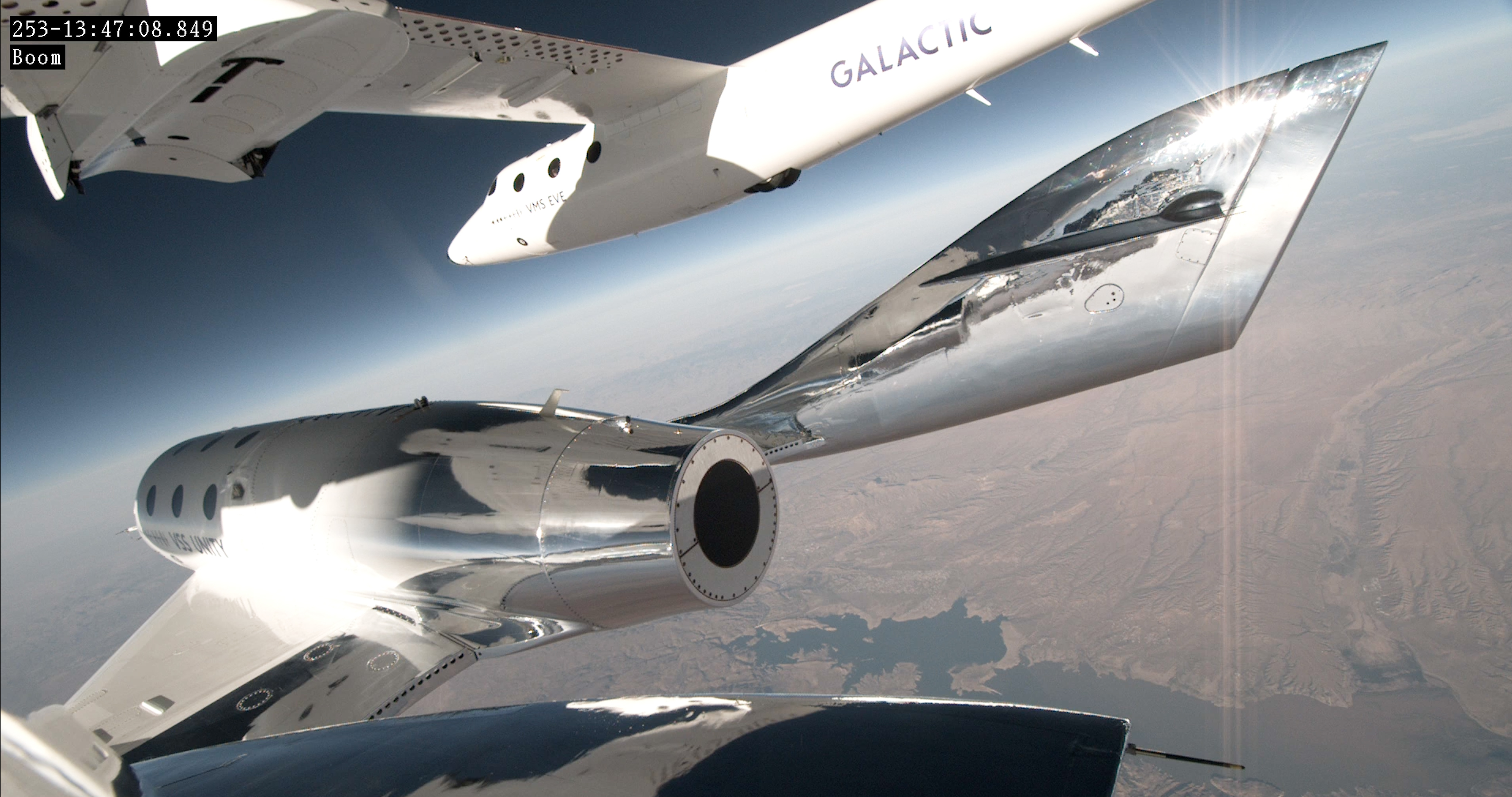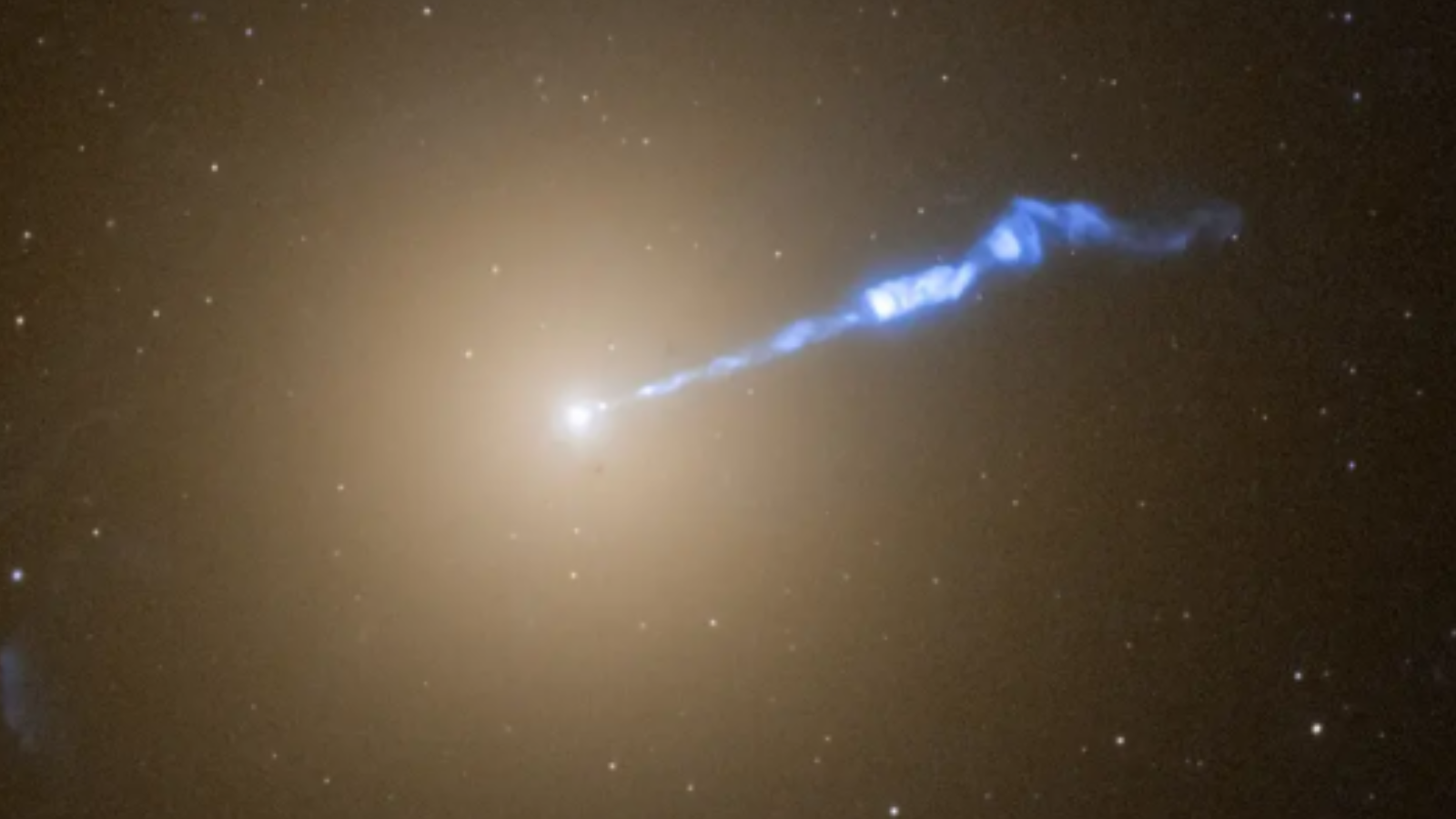Virgin Galactic spacecraft makes first glide since historic spaceflight, aims for space
'She's a beautiful glider, and we are able to execute a beautiful runway landing.'

Virgin Galactic's spaceplane is back in flight after two years on the ground.
The VSS Unity spacecraft from Virgin Galactic performed a nine-minute test glide over New Mexico's Spaceport America on Wednesday (April 26) to evaluate how well the spaceship and carrier plane VMS Eve are doing after a fleet upgrade.
"What I love about Unity is she is a delight to fly, and she's a beautiful glider, and we are able to execute a beautiful runway landing," chief pilot Dave McKay said of the flight on a video released on Twitter.
While Unity's highest altitude after its 9:47 a.m. EDT (1347 GMT) release was 47,000 feet (14,300 meters), Virgin Galactic pledged future flights would reach suborbital space. The company will "assess the customer experience and ground-based testing prior to the launch of commercial service" when this next flight happens, officials tweeted; the timing has not been released.
Related: Virgin Galactic's carrier plane flies back to New Mexico spaceport
VSS Unity is designed to fly high in the sky underneath its carrier vehicle, VMS Eve. When the two are aiming for space, Eve drops Unity just before the spaceplane ignites its rocket motor to soar up to the final frontier. The two vehicles then make their way back to the ground separately, landing on a runway.
Together, the two vehicles have done space missions (with Unity flying in space) four times: Twice from Mojave Air and Space Port and twice from Spaceport America. The most recent spaceflight in July 2021 sent Virgin Group founder Richard Branson and three other passengers to space.
Breaking space news, the latest updates on rocket launches, skywatching events and more!
Shortly after, Virgin Galactic said it would suspend spaceflights to maintain and upgrade Unity and Eve. That work has included replacing Eve's pylon, which is referring to the point where Unity attaches to the carrier plane. Eve performed two solo excursions earlier this year after a couple of years on the ground.
Objectives of the glide flight included evaluating the spaceship as it flew, examining Unity's "handling qualities and flight controls," and gathering data on the mothership pylon.
The glide flight crew on the Wednesday flight included Kelly Latimer and Jameel Janjua aboard VMS Eve, and Nicola Pecile and CJ Sturckow aboard VSS Unity.
This story was updated May 1 at 8 a.m. with more flight details from Virgin Galactic.
Elizabeth Howell is the co-author of "Why Am I Taller?" (ECW Press, 2022; with Canadian astronaut Dave Williams), a book about space medicine. Follow her on Twitter @howellspace. Follow us on Twitter @Spacedotcom or Facebook.

Elizabeth Howell (she/her), Ph.D., was a staff writer in the spaceflight channel between 2022 and 2024 specializing in Canadian space news. She was contributing writer for Space.com for 10 years from 2012 to 2024. Elizabeth's reporting includes multiple exclusives with the White House, leading world coverage about a lost-and-found space tomato on the International Space Station, witnessing five human spaceflight launches on two continents, flying parabolic, working inside a spacesuit, and participating in a simulated Mars mission. Her latest book, "Why Am I Taller?" (ECW Press, 2022) is co-written with astronaut Dave Williams.
